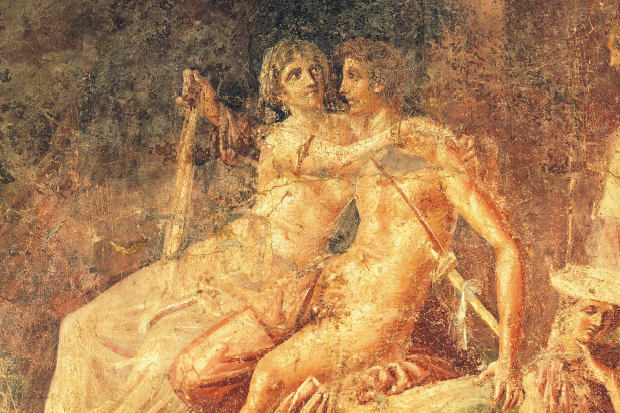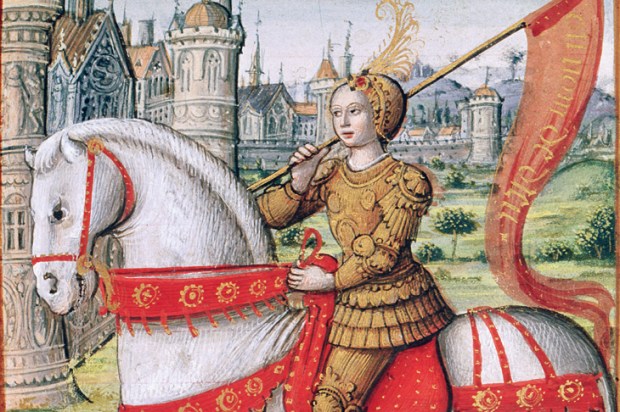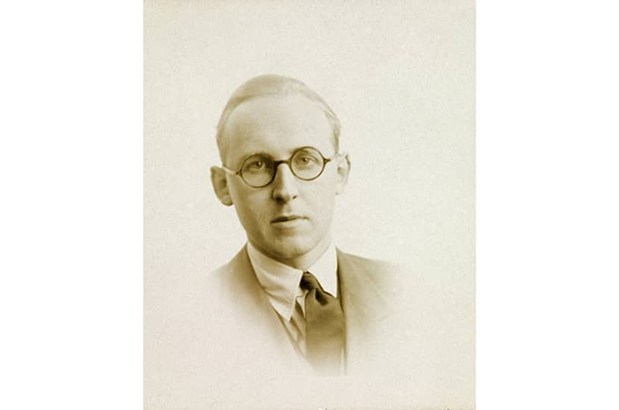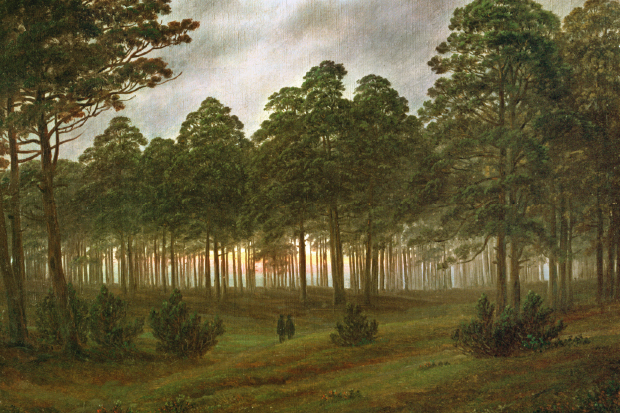Reading Daisy Dunn’s ambitious first book, a biography of the salty (in more ways than one) Roman poet Catullus, it struck me how lucky we are: only one copy of his collection of poems survived the ages, hidden under a bushel in Verona.
Catullus might have gone the way of his contemporaries, such as Cinna, whose lynching is immortalised in Julius Caesar, and whose poems are now dust. Happily, we have Catullus’s small, polished oeuvre, varied and ravishing: there are squibs, lambasting his fellow Romans (‘The father has the filthier right hand/ But the son’s anus is the more voracious’); fascinating mini-epics traversing all of Greek myth; beautiful marriage hymns; and the ‘Lesbia’ poems, recounting his affair with the aristocratic Clodia Metelli. His verse has an earthy resonance that is yet learned and urbane: though we see him from afar, he looks a lot like we do.
He was active in Rome in the first century BC, ‘some of the most uncertain and turbulent times’ that city had ever seen. Dunn ably sketches in the background, as Julius Caesar, Cicero and Pompey warily circle each other. Diurnal matters are clearly rendered, with an eye for evocative — and provocative — detail: Pompey is ‘by all accounts an enthusiastic lover; women had been known to leave his bed wearing the imprint of his teeth’, while Caesar ‘tended to remove excess body hair with tweezers’. There is insight into Roman contraceptives: ‘Post-coitus, she should squat down and sneeze a good few times, wipe herself down, and have a cold drink.’ As Dunn drily notes, this seems to have worked for Catullus, as he never had any children. All of this is enjoyable and diligently researched.
Difficulty arises, however, whenever our subject appears. Dunn must infer from the poems what biographical details she can, and this has its problems, as we can’t say — even with a poet who drew so closely on his own life — what is persona and what is not.
These are the basic facts: Gaius Valerius Catullus was born about 84 BC, in provincial Verona, part-Gaul, part-Etruscan, to a wealthy family and, like many seeking their fortunes, moved to Rome. Here, he fell in love with the older, married Clodia Metelli, a scion of the ancient Claudii family. (Her brother, Clodius Pulcher, had de-toffed his name so he could represent the plebeians — rather as James Blount has lost the telling ‘o’ — and his sister followed suit.) But after an intense affair, Clodia switched to another raffish young patrician, and Catullus went off to Bithynia, where ‘baby crocodiles rolled in the spring at Chalcedon’; he
died from unknown causes in his 30th year.
It is the poems that Catullus wrote about Clodia that are his best known. He cast her as ‘Lesbia’ — metrically equivalent to Clodia — and charted his feelings about her, from peak of love to trough of despair. Yet this relationship, and Catullus himself, remain curiously undeveloped in Dunn’s book. When we first meet Clodia, we are told that a ‘combination of intensity and introspection lent her a gravitas Catullus had never seen in a woman before’. Such conjectures, alas, don’t really help us to understand who she was, and why Catullus loved her so much. The glimpses we get of this woman, in Catullus and Cicero, are tantalising: a poet herself, she outlived all who loved her, and saw the rise of an empire. We are lucky — but not lucky enough: if only her story had survived, too.
As for Catullus:
On bad days he was given to believe that times were getting worse. On better days he accepted that humans are simply predisposed to finding their own times inferior to those that came before them.
This doesn’t do justice to this poet of extremes and paradox.
Dunn’s undoubted strength is as a sure-footed and elegant literary critic, particularly when it comes to poem 64, the scintillating mini-epic from which she takes the title of her book. The ‘bedspread’, a physical object within the poem, is embroidered with the story of the abandoned Ariadne: as she points out, Catullus often took the ‘wounded’, feminine role, with Lesbia as the cruel Theseus. (Dunn’s own deft version is included as an appendix; and she has translated, with bright-eyed intelligence, all the poems in another volume.) It is insights like this that make our poet come alive.
Catullus’ Bedspread is richly woven, and Dunn’s deep passion for her subject is patent, as she sifts through the smallest of hints to build up her picture; yet while the backdrop is striking, the figure of Catullus himself remains as elusive as ever.
Got something to add? Join the discussion and comment below.
Get 10 issues for just $10
Subscribe to The Spectator Australia today for the next 10 magazine issues, plus full online access, for just $10.
'Catullus’ Bedspread', £16.99 and 'The Poems of Catullus', £8.99 are available from the Spectator Bookshop, Tel: 08430 600033. Philip Womack’s fifth novel, The Double Axe, will be published by Alma later this year.
You might disagree with half of it, but you’ll enjoy reading all of it. Try your first month for free, then just $2 a week for the remainder of your first year.














Comments
Don't miss out
Join the conversation with other Spectator Australia readers. Subscribe to leave a comment.
SUBSCRIBEAlready a subscriber? Log in